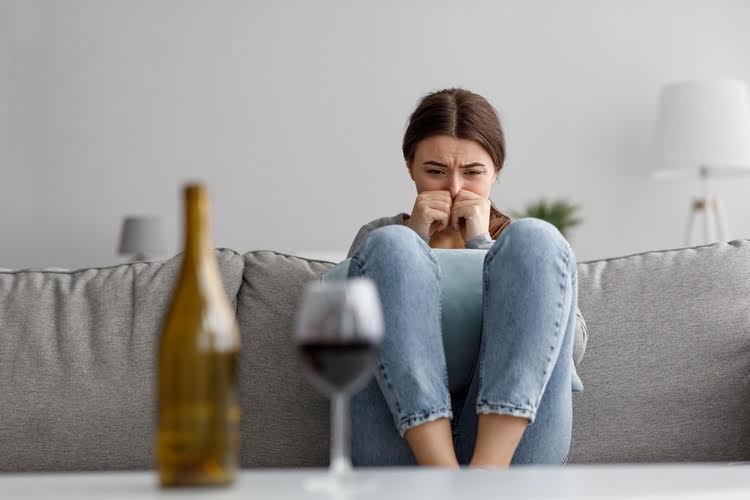Content
Your body and brain may need time to wind down before falling asleep. If you follow a regular and relaxing bedtime routine, your mind will start to make the connection between these activities and sleep. Because your body and brain are trying to adjust to life without alcohol, the more you stick to a routine, the better. During residential alcohol treatment, your schedule is mostly already in place for you, but when you are on your own, it is important to try to keep a similar schedule. If you are going to bed at different hours every night, your body will struggle to regulate its circadian rhythm.
- Online communities for non-physician, AASM members to network with and learn from colleagues with similar professional backgrounds.
- Keep your bedroom cool, dark, and quiet, and use a comfortable mattress and pillows.
- Thankfully, sleeping without alcohol is an achievable goal if you follow several recommended strategies.
- Symptoms can range from mild to severe, and frequently include insomnia and other sleep disruptions.
- Targeted sleeping medication can be provided if insomnia continues to be a troubling symptom.
There are both psychological and physical hurdles to overcome when seeking sobriety. In a normal circadian rhythm, hormones are released at certain times throughout the day. Alcohol interrupts this process, causing abnormalities in how circadian hormones are released. Alcohol also impacts other chemicalslike adenosine, which prevents the brain from becoming stimulated. 1 and are not described further as they are of limited clinical utility. The authors also compared changes in the GGT, CDT, AST and ALT over the course of treatment.
Trazodone
In 2011, it was estimated that 252.7 days are lost across the US Workforce due to the symptoms of Insomnia, every year. Reach out to a treatment provider for alcohol insomnia free today for immediate assistance. 5 Risks When Drinking Alcohol In The Summer SunSummer is a wonderful time to go outside and enjoy outdoor activities.
- Heavy drinking means more than 15 drinks per week for men and more than eight drinks per week for women.
- Studies suggest avoiding nicotine and caffeine, as they are stimulants, at least four to six hours prior to going to sleep as they will make it more difficult to fall or stay asleep.
- They also trained the rats to self-administer sips of alcohol—which the animals did, reliably and at ever-escalating doses—whenever the shutoff of the vapor induced withdrawal pangs.
- His research and clinical practice focuses on the entire myriad of sleep disorders.
- When he isn’t behind a computer, Cooper travels somewhere new.
- AASM accreditation demonstrates a sleep medicine provider’s commitment to high quality, patient-centered care through adherence to these standards.
- Though alcohol can have a sedative effect, it has also been linked to sleep disorders like insomnia.
When a person drinks alcohol, doing so in small or moderate amounts several hours before sleep can reduce the chance of sleep issues. Additionally, low-to-moderate alcohol consumption is always the best practice for minimizing sleep disruptions or health concerns. The CDC defines moderate drinking as two or fewer drinks for males, and one or fewer for females, in a given day. Individuals with insomnia have difficulty maintaining a consistent sleep schedule. Experts state that acute insomnia lasts up to a few days to weeks, while chronic insomnia continues for several months. If you or a loved one are suffering from Insomnia that you believe is tied to an alcohol use disorder, then your problem is likely more severe than you realize.
How Long Does Insomnia Last After Quitting Drinking?
Addiction to alcohol and insomnia commonly co-exist, as many who have trouble falling asleep mistakenly turn to alcohol in order to help them get rest. March 17, 2023 – Young adults with a higher body mass index reported increased hunger and food intake along with impaired blood pressure and heart rate regulation after a night of reduced sleep. Our science-backed approach boasts 95% of patients reporting no withdrawal symptoms at 7 days.
Avoid watching TV and using your phone, tablet, or laptop prior to winding down as these activities can trigger your brain to stay awake longer, resulting in sleep disturbances. Limiting the usage of bright screens at least 30 minutes prior to bedtime can help your mind and body slow down and relax. Managing insomnia in alcohol recovery isn’t just about getting sleep, it is about avoiding relapse. Persistent sleep problems after withdrawal are connected to a greater risk of alcohol relapse.1 To stay on track, it is important to learn how to deal with insomnia after quitting alcohol.
FAQs about alcohol and sleep
As the night progresses, this can create an imbalance between slow-wave sleep and REM sleep, resulting in less of the latter and more of the former. This imbalance decreases overall sleep quality, which can result in shorter sleep duration and more sleep disruptions. Increased pressure for rapid eye movement sleep at time of hospital admission predicts relapse in nondepressed patients with primary alcoholism at 3-month follow-up. Assessment and treatment of insomnia in adult patients with alcohol use disorders.

As orexin’s role in addiction has emerged, researchers have tested these medications as addiction treatments, mostly in animals. Research at Rutgers has found that low doses of one of these medications can reduce drug-seeking behavior in rats without sedating them or impairing cognitive function. Moreover, a recent study from Johns Hopkins University showed that this medication can reduce cravings in people detoxifying from opioids. Some people drink closer to bedtime to help them get to sleep. But that can start a dangerous cycle of more fragmented sleep, followed by heavier drinking.
